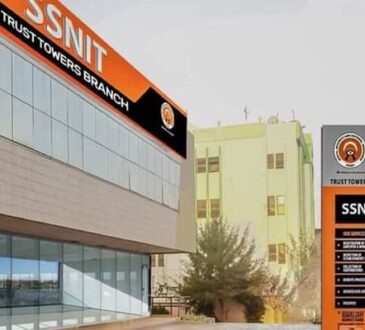
In today’s globalized world, the need for swift and secure payments of goods and services has become more important than ever.
SWIFT payments have emerged as a reliable and efficient way to make payments within and across borders, and they have become a preferred option for many consumers and businesses alike. In 2020, the World Bank established that the implementation of the African Continental Free Trade Area (AfCFTA) has the potential of growing African exports by $560 billion while increasing Africa’s income by $450 billion by 2035.
A treaty that is going to connect approximately 1.3 billion people across 55 African countries with a combined GDP of $3.4 trillion.
What is SWIFT?
SWIFT stands for Society for Worldwide Interbank Financial Telecommunication and is a network that connects banks and other financial institutions across the world. The network provides a secure and reliable platform for the transfer of funds between banks, making it a popular choice for international payments for goods and services.
SWIFT payments, therefore, refers to an international messaging system used by banks and other financial institutions to securely exchange sensitive payment instructions related to international trade and money transfers.
The SWIFT system uses a standard system of codes to transfer money from one country to another. Each bank or financial institution enrolled on the SWIFT platform is given a unique eight (8) to eleven (11) character long, standard format which identifies banks and financial institutions worldwide. Eg (ECOCGHACXXX). Some of the message codes that banks, and financial institutions use to communicate amongst themselves are, MT103 – this is a standard SWIFT payment message, used to instruct the transfer of funds from one individual account to another. MT202 – This SWIFT message is used for bank-to-bank transfers, specifically for covering banks. MT700 – This is a SWIFT message used for issuing letters of credit. MT199 – This is a SWIFT message used for sending a free format message. MT910 – This is a SWIFT code used for confirmation of credit. MT940 – This is a SWIFT message used for balance reporting.
Benefits of SWIFT Payments to SMEs
- Speed.
Payments made through the SWIFT network typically take only a few hours to complete, depending on the banks involved and the time zones. This is significantly faster than traditional methods of making payments across borders, which could take several days or even weeks to complete. The speed SWIFT payments come with is a sure way to enable our local SMEs receive and send money quickly for goods and services and increase trade volumes, free up time previously lost while waiting to confirm payments. This can be crucial for Small and Medium-Sized Enterprises (SMEs) that operate in fast-paced environments where quick access to capital can be the difference between success and failure. For instance, a shoe manufacturing house in Accra were to buy raw materials from a leather manufacturer in Kenya, it would be able to make payment for the leather instantly on the SWIFT platform. The leather manufacturer in Kenya would receive payment into its bank account, thereby skirting currently common delays – freeing up time to respond quickly to the order from Accra.
- Security.
The SWIFT network is highly secure and uses state-of-the-art encryption to protect the transfer of funds. This ensures that the transfer of funds is safe from any potentially fraudulent activity or unauthorized access. This can help to build trust between SMEs and their customers, partners, and suppliers, which can be especially important for businesses that operate in regions where fraud and cybercrime are prevalent.
- Convenient and easy to use.
Local Small and Medium-sized Enterprises can initiate payments through their bank or financial institution, and the transfer is processed quickly and efficiently. Additionally, many banks and financial institutions offer online platforms and mobile applications that allow customers to initiate SWIFT payments from the comfort of their own homes. This can be particularly convenient for our Ghanaian SMEs that need to make urgent payments or transfers outside of regular business hours.
- Access to global markets.
SWIFT connects four billion accounts across more than 11,000 institutions in 200 countries and territories to securely and confidently move value around the world. SWIFT payments can help our local Ghanaian SMEs to expand their reach beyond their local markets and tap into new global markets. This can be particularly valuable for businesses that operate in industries such as manufacturing, where entree to global supply chains and international markets is critical. SWIFT operations in Ghana, particularly when it comes to the African Continental Free Trade Area (AfCFTA) will be very beneficial to the promotion of trade amongst SMEs in the region. The SWIFT platform would enable cross-border payments and support the African Union’s undertaking of creating a single market and trading coalition by making payment systems interconnected across the continent, thus easing the free exchange of goods and services.
Again, SMEs in Ghana are better off using SWIFT as a medium to make their advanced payments, documentary collections and issuance of letters of credit in their international trade activities. The funds allowed to be transferred on the platform to effect payments to partners and suppliers is unlimited. Unlike the other money transfer platforms (Western Union, Unity Link, etc) which restricts the amount that can be transferred at a go.
- cost-effective
SWIFT payments can be cost-effective for SMEs in Ghana that need to make regular payments or receive payments from overseas. This is because they offer competitive exchange rates and fees, which can help SMEs to save money on currency conversion and transfer fees.
- Transparency and visibility
SWIFT payments provide a high level of into the payment process in international trade. The platform provides payment pre-validation service which allows banks and financial institutions to authenticate beneficiary account details before an international payment is sent, thereby eliminating a key point of abrasion in cross-border trade transactions. Before sending a payment, banks and financial institutions connected onto the SWIFT network can check the validity of the beneficiary account by comparing it against SWIFT’s enormous store of transaction data. The validations are completed in real-time through APIs, and pre-validating payments will save time and reduce friction between businesses and their partners.
- Highly automated
This help streamline trade transactions and reduce administrative burdens. This can be especially important for small and medium-sized enterprises (SMEs), which may not have the resources to manage complex payment processes.
Potential drawbacks
While there are many advantages to SWIFT payments, there are also some potential drawbacks to consider.
- compliance requirements
This is one of the main drawbacks that pose a big challenge to the service. SWIFT payments are subject to strict regulatory and compliance requirements, which can be challenging for SMEs to navigate. This can result in delays and additional costs associated with compliance-related activities.
- delays or errors in transactions
SWIFT payments may be subject to delays and errors which can impact the speed and efficiency of the transfer. It is important for customers to carefully review the terms and conditions of the transfer and to ensure that all information provided is accurate to avoid any potential issues.
- complexity
This can be a potential drawback. The process of setting up and initiating a SWIFT payment can be complex and time-consuming for SMEs that are not familiar with the process. This can be especially challenging for businesses that lack the technical expertise to navigate the system and ensure that transfers are executed correctly.
- limited coverage.
While swift transfers can provide access to global markets, the service is not available in all countries and regions like (Cape Verde, Libya,Angola, Burundi, Guinea, Morocco, Sudan, Russia, Iran, etc). SMEs operating in areas with limited SWIFT coverage may find it challenging to send and receive payments through the service and this hampers the process of doing business smoothly amongst SMEs and their partners, and the supply chain process.
Conclusion
Swift transfers have become a popular option for individuals and businesses looking for a fast, secure, and reliable way to transfer money within and across borders. While there are some potential drawbacks to consider, the benefits of using SWIFT payments generally outweigh the costs, making them a preferred choice for many customers for payments of goods and services. Overall, SWIFT payments can help SMEs in Africa to overcome some of the financial barriers they face and enable them to compete effectively in global markets. With continued advancements in technology and increasing global connectivity, SWIFT payments are likely to remain a critical component of international payments for years to come. The revolution in cross-border payments is accelerating, and the need for instant and frictionless transactions from one account to another anywhere in the world is greater than ever. SWIFT and its community partners cooperatively deliver this together, powering a more inclusive global economy that works better for everyone and making financial services more accessible through digital channels.
BY: BRIGHT KWAKU AZUMAH (BA, MBA) The writer is a banker at Ecobank Ghana PLC focused on working with SMEs and Corporates in Ghana on their Payments service’s needs.







